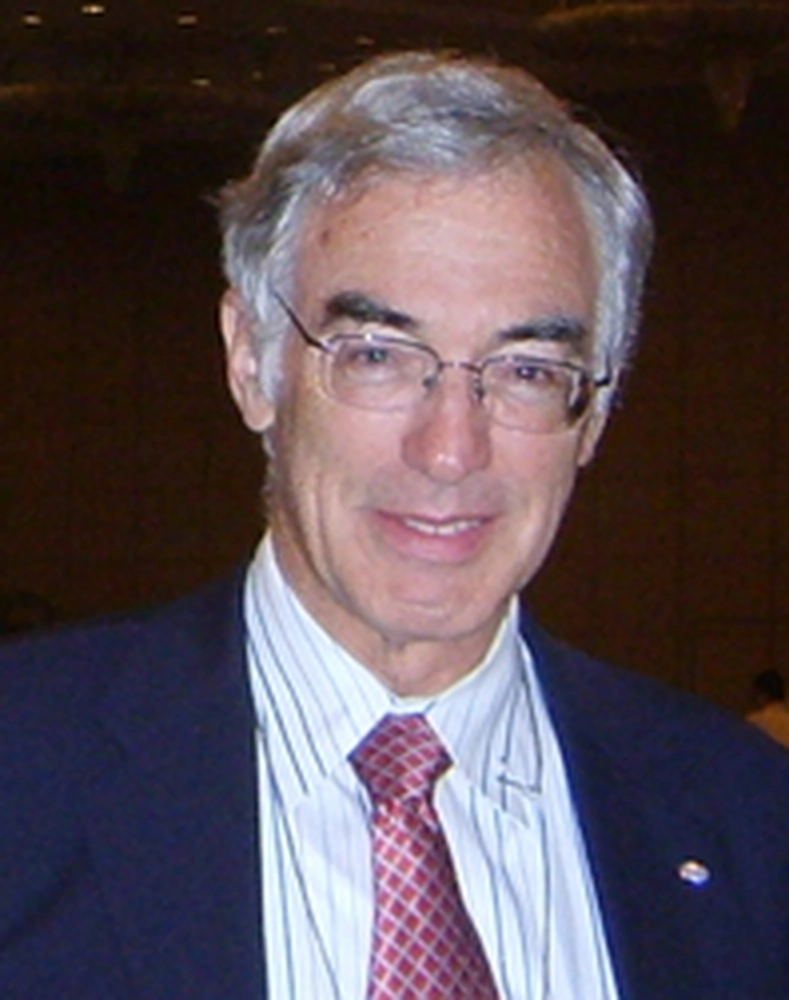
Steve Miller
PhD, 1974
Advisor: J. Wetmur
Some 40 years ago, Steve Miller was a chemistry doctoral student at the U of I studying DNA. He knew next to nothing about petroleum, and so it was with some dampened optimism one day that he introduced himself to a campus recruiter from Chevron, one of the largest oil companies on the planet.
When the recruiter asked him to tell him something interesting about himself, Miller talked about the first thing that came to mind: race horses, which he had helped breed and race with his father. Somehow it earned him an interview, and not long after that he got a call.
“We’re gonna take a chance on you,” they told him, as Miller recalls. As it turns out, hiring Miller may have been one of Chevron’s best gambles. Today, Miller is senior consulting scientist and a Chevron Fellow at the company, where he’s become one of the most influential research scientists in the oil industry.
He is listed as inventor on more than 200 patents, with dozens more in the works. He’s worked in several areas during his career, which he’s spent entirely at Chevron, but he’s best known for his patents on catalysts and catalysis, the process to convert raw oil into commercial products. He is the inventor of the company’s Isodewaxing process, which has greatly increased the life of engine oils, by his estimation.
If this were a movie script, Miller might be described with a few Back to the Future-type details like wild hair and cries of “Great Scott!” But in reality, Miller, who resides in the Bay Area of San Francisco, attributes his success to not only good science but a very unscientific ability to engage with people.
Miller spends a lot of time talking and listening to customers about their problems, and he even gleans ideas from people outside the industry. And for every “Eureka!” moment there must be a sales pitch, he adds, because good ideas are doomed if he can’t explain their significance to a vice president or CEO.
Sometimes your ideas are right and sometimes they’re not, he muses, but he’s been right on some very big ideas. When he first arrived at Chevron he made up for his lack of oil industry exposure by spending many late nights in the lab. At some point he became interested in zeolites, a catalyst.
“When I told my supervisor that I wanted to work on zeolites he said to me, ‘Okay, you can do that but just remember our company will never use them because they’re too expensive,’” Miller recalls. He pressed on nonetheless, and through his work zeolites turned out to be a major new area in refining technology at Chevron.
And, about a decade ago, he impressed upon the Chevron CEO the future of biofuels, which have since become a business unit within the company.
“One thing I think I’ve been good at is selling people on ideas, putting it in language that they can connect with and understand and see the value,” he says. “A lot of people out of grad school, they understand the science but they don’t necessarily understand how to sell ideas. That’s very important if they’re going to be successful.”
Miller grew up in the Los Angeles area and attended UCLA for his undergraduate studies. Upon the recommendation of faculty at UCLA, and following an urge to see life outside of southern California, he came to the U of I where he earned his doctoral degree in 1974.
“I had a really good education at Illinois, which helped prepare me for work, because as long as you learn how to do research you should be able to do anything, and work in any area,” he says.
While at Chevron, he married and soon had more reason to work hard—triplet boys. He was the only breadwinner in the family, “so I didn’t have a choice but to be successful,” Miller says.
And he was. Early in his career, his vice president gave Miller what he dubbed a hunting license, which meant Miller was free to work on whatever he wanted to.
“I never had to go and justify projects; I could work on whatever I wanted to, and he made sure that I had the people and resources to do that,” Miller explains. “Of course I needed to produce things of value, but having that freedom to work on whatever I wanted really made my job exciting, and that’s why I got into so many different areas.”
His first patent was based on an idea to refine gasoline, and since then it’s been a train of one idea after another. Every now and then, he says, he asks himself what’s next, but something new always seems to catch his eye. Miller says he’s risen as high in the ranks as he will at Chevron, but only because company rules dictate that with one more promotion he would have to retire—a step he’s not yet willing to take.
Miller predicts that his remaining years at Chevron will be good ones. Recently, he was filmed for a presentation to be shown to all company employees, and he was asked why 2013 will be an exciting year.
His reply was based on experience. “Every year,” he said, “is exciting!”
Courtesy of LAS News, article by Dave Evensen